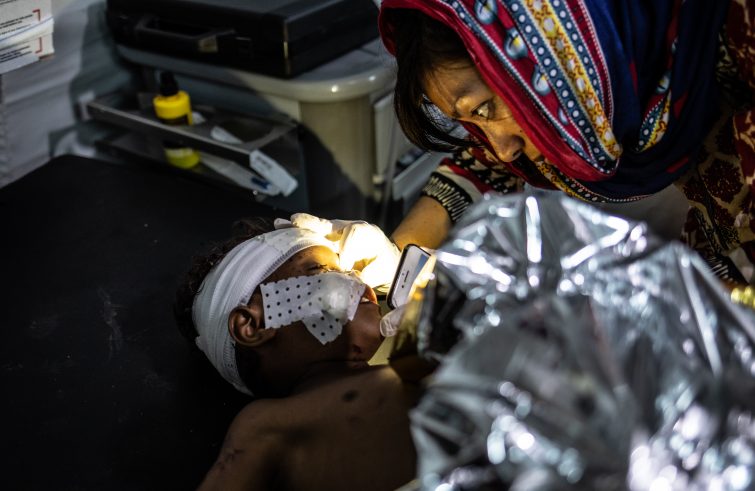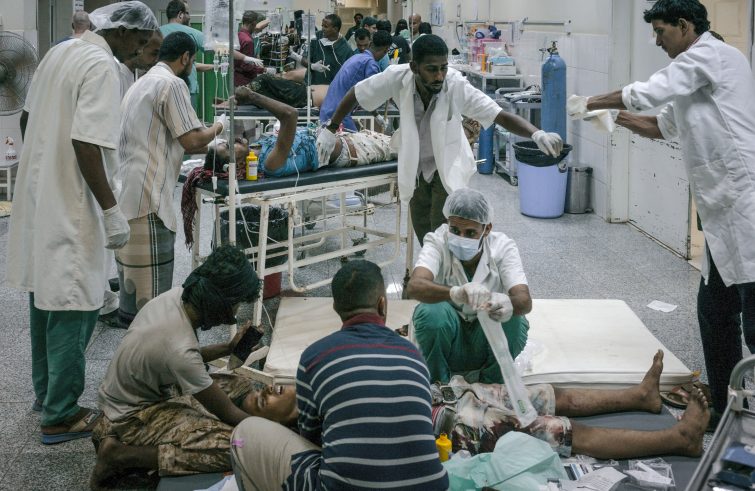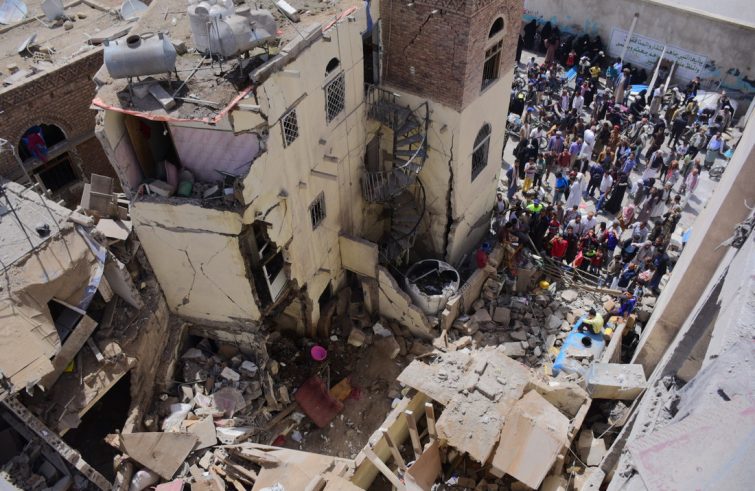
It’s one of the world’s most savage wars. And the world’s largest humanitarian crisis. Yet it (almost) never hits the headlines. It has been escalating further in recent months. The seven-year-old conflict in Yemen between the Iran-backed Houthi rebels (Ansar Allah) and the government backed by a Saudi-led military coalition has grown increasingly harsh and complex. Civilian casualties, bombings of hospitals, schools, markets and prisons have increased. More than half of all health facilities in the country are closed, there is a shortage of medicines, health workers have not been receiving a regular salary.
Over 2500 schools damaged; 60% of all children have not returned to school. Over the past five years, Save the Children reports, more than 460 schools have been attacked, more than 2,500 schools were damaged, used as shelters for displaced families or occupied by armed groups, causing 400,000 children to drop out of school. Sixty per cent of all children have not returned to school.
Humanitarian aid – eight million people risk running out of food. There is a high risk that funding provided by the international community for humanitarian aid may drop in March, with eight million people likely to be left without food or reduced rations, on a total of 20 million in need of humanitarian assistance, including four million displaced persons (one million in Marib governorate alone). According to the UN, the 2021 Yemen Humanitarian Response Plan received $2.27 billion out of its $3.85 billion requirement – the lowest funding coverage since 2015. And the 2022 aid programme has not yet been released.
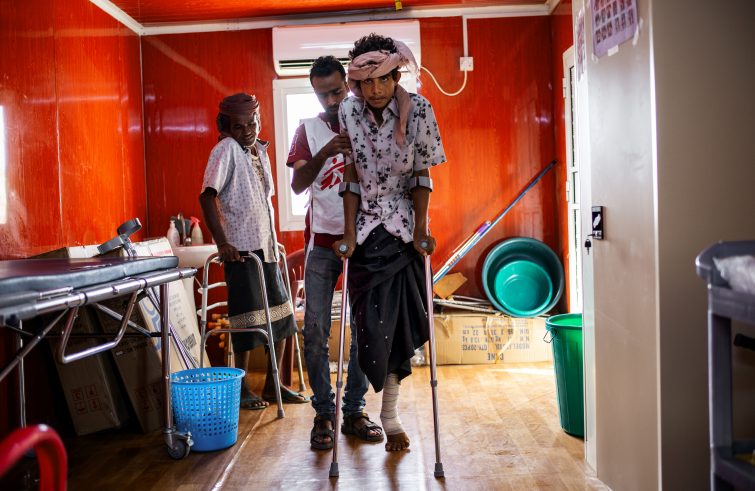 At least 18,500 civilians have been killed. The seven-year-old war has claimed over 370000 lives – 40% of whom died through direct conflict and 60% indirectly (road accidents, childbirth, malnutrition, untreated diseases, lack of medicines, delayed hospital admission). Other sources estimate 18,500 civilians killed or wounded. UNICEF reports that the total number of children killed in January (17) was twice that of December 2021.
At least 18,500 civilians have been killed. The seven-year-old war has claimed over 370000 lives – 40% of whom died through direct conflict and 60% indirectly (road accidents, childbirth, malnutrition, untreated diseases, lack of medicines, delayed hospital admission). Other sources estimate 18,500 civilians killed or wounded. UNICEF reports that the total number of children killed in January (17) was twice that of December 2021.
At least 10.000 children have been maimed or killed since 2015.
Oxfam reported that there was a 60 percent increase in civilians killed in the last three months of 2021 compared to the previous quarter.
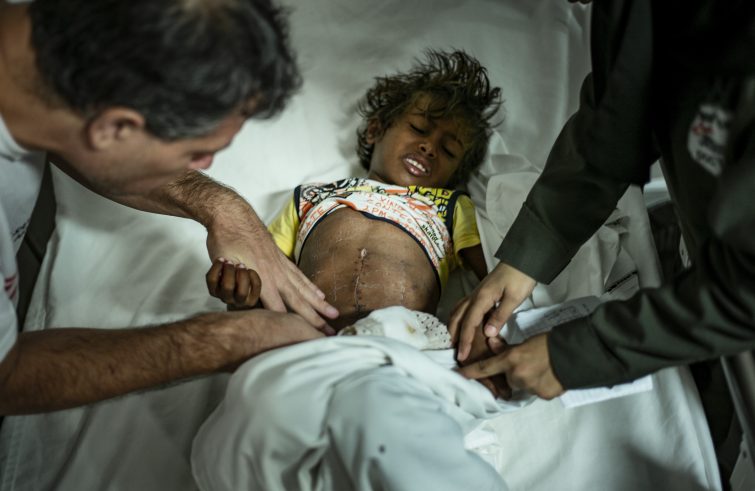 The latest violent conflict involving Yemeni civilians occurred a few days ago in the Al-Jar area of northern Abs district,
The latest violent conflict involving Yemeni civilians occurred a few days ago in the Al-Jar area of northern Abs district,
Following a bombing in Yemen’s Hajjah governorate a 12-year-old girl and a 50-year-old woman died shortly after their arrival at the hospital in Abs,
where a Doctors Without Borders team operates. Another 10 civilians wounded during the bombings were hospitalised. The humanitarian-medical organisation, operating in the country since 1986 and active in 12 hospitals and 16 health facilities since 2007, has recorded a significant increase in the number of wounded persons, indicating that indiscriminate attacks on the defenceless population are increasing. The Saudi-led Coalition’s airstrike on Sa’ada City Prison at the end of January killed at least 82 people and wounded 266. Hospitals run and supported by Doctors Without Borders have already been hit five times. Federica Ferraresi, head of the Doctors Without Borders mission in Yemen spoke of “increasingly dramatic humanitarian conditions” :
“There is a shortage of water, electricity, gas, food, fuel, medicines, housing. There are no safe shelters for civilians
forced to travel repeatedly owing to the changing battlefront. Infrastructure has been destroyed or heavily damaged. The national healthcare system is collapsing”, as is the economy, with skyrocketing food prices and double-digit inflation.
Abductions of aid workers. Humanitarian aid workers are now facing kidnappings. Five UN staff members in Yemen were abducted by Houthi militias a few weeks ago in Abyan province in the south of the country. Negotiations for their release are ongoing.
The United States and the UN have recently condemned all the attacks and called for de-escalation of the conflict and respect for international humanitarian law. The Biden administration is under pressure to again designate the Houthi rebels as a “foreign terrorist organization” – the designation had been lifted a year ago in an attempt to promote peace talks. But the rebels are starting to attack the UAE with drones and missiles. Three people were killed in Abu Dhabi last January.
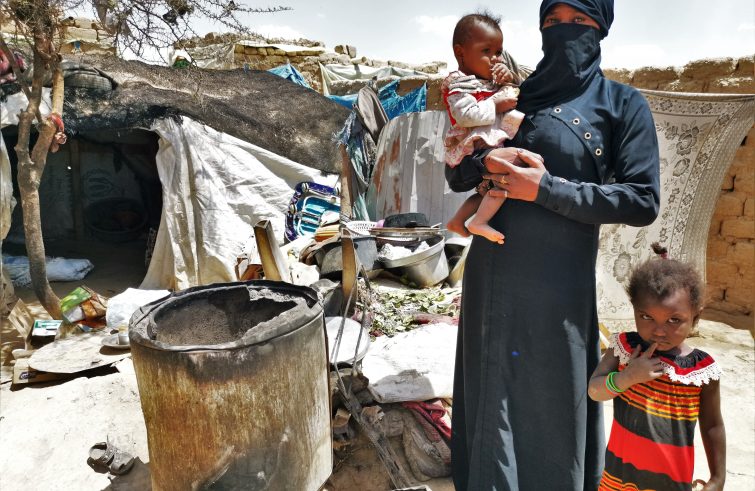 “An international disgrace.” “The conflict ongoing in Yemen amidst the silence of leading international decision-makers, is a disgrace that erodes the very notion of humanity,” said Paolo Pezzati, policy advisor for humanitarian emergencies at Oxfam Italy. “Why doesn’t the international community negotiate an immediate ceasefire and impose on the warring parties compliance with international humanitarian law, which stipulates that civilians and essential infrastructure such as schools, hospitals and water plants must not be affected? The people of Yemen can wait no longer for a peace that is growing increasingly distant with each passing month.” Oxfam has provided relief to over 3 million Yemenis since 2015 with vouchers to buy food, jobs in the reconstruction of water and road infrastructure, services to prevent abuse and violence against women and the spread of the Covid-19 pandemic.”
“An international disgrace.” “The conflict ongoing in Yemen amidst the silence of leading international decision-makers, is a disgrace that erodes the very notion of humanity,” said Paolo Pezzati, policy advisor for humanitarian emergencies at Oxfam Italy. “Why doesn’t the international community negotiate an immediate ceasefire and impose on the warring parties compliance with international humanitarian law, which stipulates that civilians and essential infrastructure such as schools, hospitals and water plants must not be affected? The people of Yemen can wait no longer for a peace that is growing increasingly distant with each passing month.” Oxfam has provided relief to over 3 million Yemenis since 2015 with vouchers to buy food, jobs in the reconstruction of water and road infrastructure, services to prevent abuse and violence against women and the spread of the Covid-19 pandemic.”

